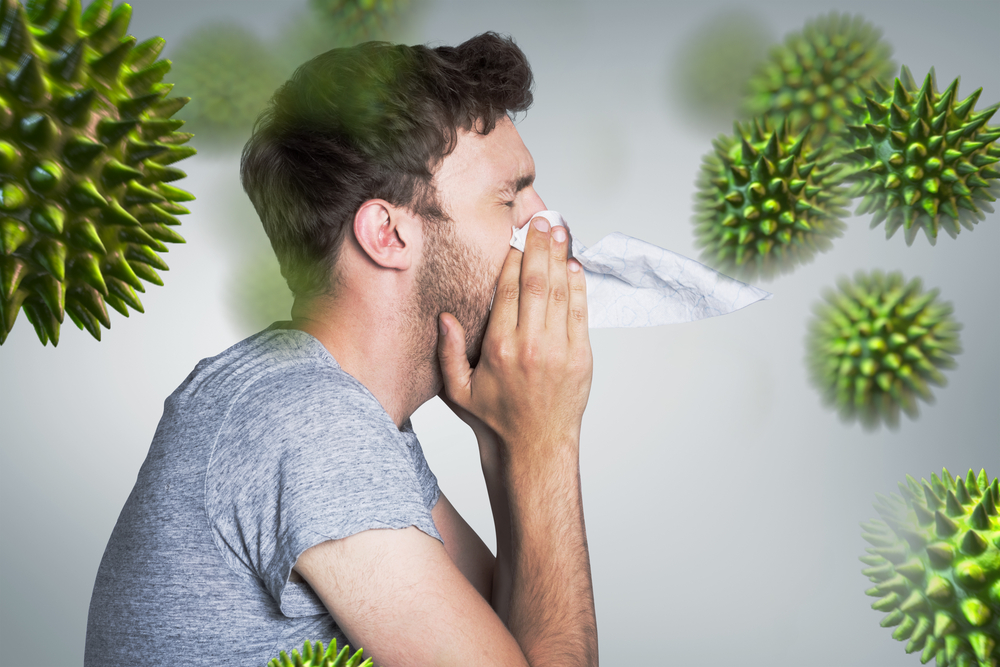 For many people, allergies are a regular nuisance that you will deal with every single year. However, just because they’re common doesn’t mean you shouldn’t take them seriously. Not only can severe seasonal allergies have a genuine impact on your quality of life every day, but they can also have impacts on your overall respiratory health. Here’s what you need to know about how allergies affect your lungs, and what you can do to minimize those effects.
For many people, allergies are a regular nuisance that you will deal with every single year. However, just because they’re common doesn’t mean you shouldn’t take them seriously. Not only can severe seasonal allergies have a genuine impact on your quality of life every day, but they can also have impacts on your overall respiratory health. Here’s what you need to know about how allergies affect your lungs, and what you can do to minimize those effects.
The Impact of Allergies on Your Lungs
If you’re a seasonal allergy sufferer, you know the symptoms of those allergies. They can include:
Though extremely frustrating to deal with, these symptoms tend to be more on the surface. What kinds of effects are those allergens having on a deeper level, down inside your respiratory system? When allergens like pollen and pollutants enter your body, your immune system recognizes it as a foreign invader, attacking it and causing inflammation much like when your body is battling a virus. This inflammation can occur in the throat, nose, lungs, and other tissues.
Inflammation in your lungs is always something to take seriously, even if it’s something you deal with every spring. Your body believes itself to be battling for your life, and any time your body enters that “fight” mode, it puts strain on your bodily systems. It’s important to try to minimize your symptoms and exposure to allergens to protect your body from the exertion of “fighting” your allergens as much as possible.
Additionally, allergies can trigger other lung and respiratory issues, like asthma and allergic bronchitis. Those who have these kinds of conditions should take extra precautions to protect themselves.
The Potential of Hypersensitivity Pneumonitis
In some rare cases, inflammation due to allergies can lead to a lung disease known as hypersensitivity pneumonitis (HP). This sensitivity and swelling of the lung tissues makes it difficult to breathe, and can even lead to irreversible scarring of the lungs over time. Generally, this condition occurs when breathing in specific environmental allergens, like bird feathers and droppings, and household mold. Symptoms of HP include:
If this condition is allowed to progress to the point of causing permanent scarring of lung tissues (known as pulmonary fibrosis), you can experience serious issues related to having too little oxygen in your body. While it might be unusual to reach this point due to allergens alone, it is nonetheless important to mitigate your risks as much as possible by taking measures to prevent or reduce allergy symptoms. It is also worth noting that those with existing respiratory health issues are more likely to develop HP.
How to Protect Your Respiratory Health
It’s practically impossible to avoid allergens altogether. Even if you stayed indoors, some pollen and other allergens can enter your home any time you open a door or window, let your pet or a friend come inside, or even simply run your air conditioner. Still, you can take certain measures to reduce your exposure and, therefore, your allergy symptoms. Here are a few suggestions:
While this might sound like a lot, most of these actions take very little effort, and can go a long way towards minimizing your allergen exposure (especially in your own home). In addition to taking these preventative measures, treating your symptoms with antihistamines, nasal sprays, and decongestants can help reduce the strain on your body’s respiratory system.
If you struggle with respiratory health issues, be sure you’re taking steps to reduce your allergy symptoms to avoid further agitating your condition. Elixair Medical can also help by providing you with oxygen therapy and respiratory therapy devices. Contact us to learn more.